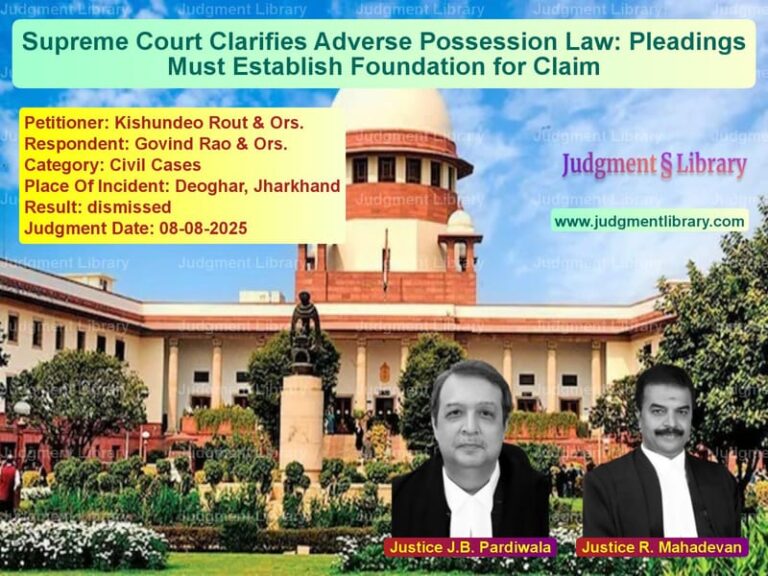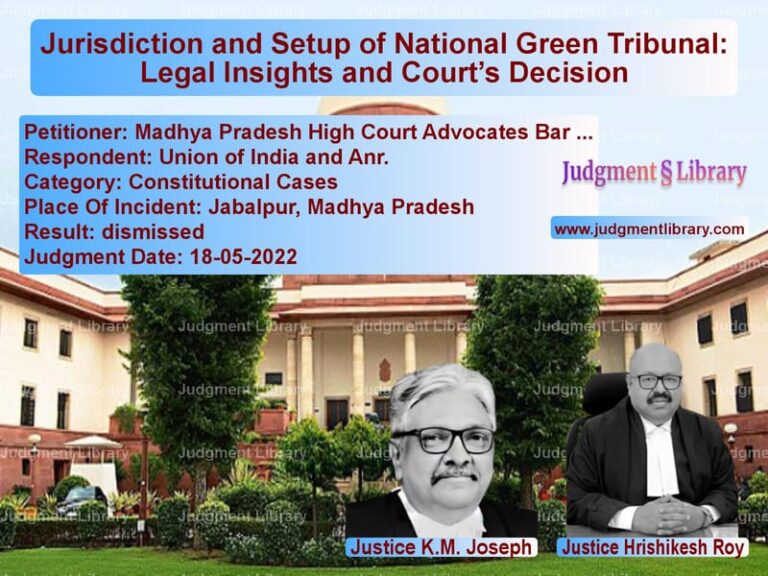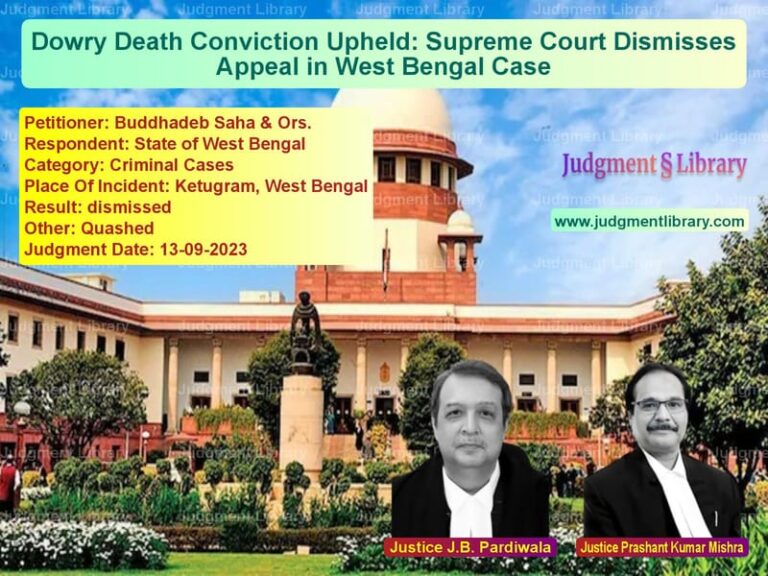NEET PG Counselling Case: Supreme Court Allows Single Counselling from 2021
The case of Alapati Jyotsna & Others vs. Union of India & Others concerns the issue of conducting a single, unified counselling process for admissions into Post Graduate (PG) medical courses, including MD, MS, Diploma, and Diplomate of National Board (DNB) courses. The petitioners approached the Supreme Court seeking a uniform counselling process instead of the separate systems currently in place.
Background of the Case
The dispute arose from the notification and Information Bulletin issued on November 1, 2019, for the NEET-PG 2020 examination. According to the bulletin, NEET-PG serves as the qualifying-cum-ranking examination for admissions into PG medical courses across various institutions, including:
- 50% All India quota seats
- State quota seats
- Private medical colleges, institutions, and universities
- Armed Forces Medical Services Institutions
- DNB (Post MBBS) courses
However, the petitioners, who appeared for NEET-PG 2020 and secured ranks ranging from 35,057 to 45,906, argued that the existing counselling system caused undue hardship. Under the current system, counselling for PG degrees and diplomas is conducted first, and only after those seats are filled does counselling for DNB courses begin. If a candidate accepts a PG seat, they become ineligible to apply for DNB courses.
Key Issues
- Should there be a single counselling process for MD/MS/Diploma and DNB courses?
- Did the existing system of separate counselling disadvantage candidates?
- Should the Supreme Court intervene in the 2020 counselling process?
Arguments of the Petitioners
The petitioners contended that:
- Separate counselling for PG and DNB courses restricted candidates from making informed choices.
- Some candidates were forced to accept less preferred PG seats, fearing that they might not get a DNB seat later.
- NEET-PG provides a single merit list, and hence, a single counselling process should be conducted.
- A uniform process would create a level playing field, ensuring candidates could make the best choice without uncertainty.
Arguments of the Respondents (Union of India & Medical Authorities)
The respondents argued that:
- The system had been in place for years and was functioning effectively.
- As of May 12, 2020, over 13,000 candidates had registered for DNB counselling, with 3,069 seats available.
- A transition to a single counselling system for 2020 would disrupt the ongoing admissions process.
- The National Board of Examinations had already initiated the DNB counselling, and modifying the system mid-year would create unnecessary confusion.
Supreme Court’s Judgment
The Supreme Court acknowledged the merit in the petitioners’ argument but declined to interfere with the ongoing 2020 admission process. The key observations were:
1. No Change in 2020 Counselling
The Court ruled that making changes at this stage would cause disruption:
“Since the petitioners have approached the Court at a stage where the entire process has been undertaken and many candidates have been allocated various courses in the Counselling, we do not deem it appropriate to pass any direction for the present year.”
2. Single Counselling Process from 2021
The Court accepted the principle that a unified counselling process is beneficial and directed the authorities to implement it for the 2021-22 academic session:
“A common counselling or single online counselling in the coming years would definitely take care of any similar grievance.”
3. Government’s Agreement to Change
The Court noted that both the Medical Council of India and the National Board of Examinations had agreed to conduct a single counselling process from the next year:
“The answering Respondent is ready and willing to conduct a common Counselling for MD/MS and DNB Courses from the next academic session i.e. 2021-22.”
Impact of the Judgment
The ruling has several important implications:
- It ensures that all candidates can apply for both PG and DNB courses without restrictions.
- It eliminates the uncertainty that forced candidates to choose between PG and DNB courses without full information.
- It streamlines the counselling process, reducing administrative burdens.
- It creates a fairer admission system by allowing all candidates to access the full range of available seats.
Conclusion
The Supreme Court’s ruling in Alapati Jyotsna & Others vs. Union of India & Others marks a significant step towards improving the PG medical admission process in India. While the Court declined to alter the 2020 admissions, it ensured that from 2021 onwards, a unified counselling system will be implemented. This decision benefits thousands of aspiring doctors by granting them greater flexibility and choice in selecting their postgraduate medical courses.
Petitioner Name: Alapati Jyotsna & Others.Respondent Name: Union of India & Others.Judgment By: Justice Uday Umesh Lalit, Justice Dinesh Maheshwari.Place Of Incident: India.Judgment Date: 26-05-2020.
Don’t miss out on the full details! Download the complete judgment in PDF format below and gain valuable insights instantly!
Download Judgment: Alapati Jyotsna & Ot vs Union of India & Oth Supreme Court of India Judgment Dated 26-05-2020.pdf
Direct Downlaod Judgment: Direct downlaod this Judgment
See all petitions in Recruitment Policies
See all petitions in Education Related Cases
See all petitions in Public Sector Employees
See all petitions in Contractual Employment
See all petitions in Pension and Gratuity
See all petitions in Judgment by Uday Umesh Lalit
See all petitions in Judgment by Dinesh Maheshwari
See all petitions in partially allowed
See all petitions in Remanded
See all petitions in supreme court of India judgments May 2020
See all petitions in 2020 judgments
See all posts in Service Matters Category
See all allowed petitions in Service Matters Category
See all Dismissed petitions in Service Matters Category
See all partially allowed petitions in Service Matters Category







